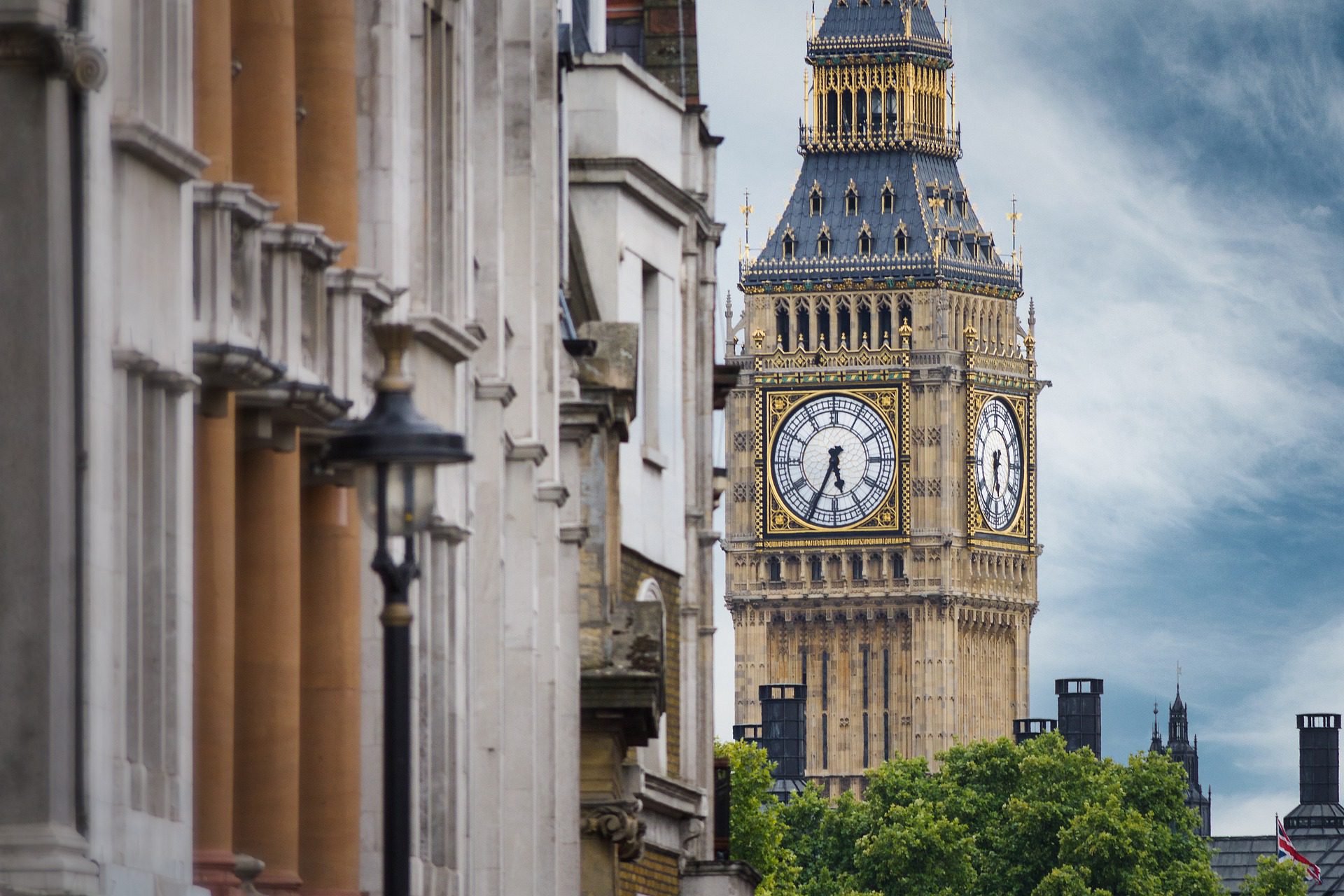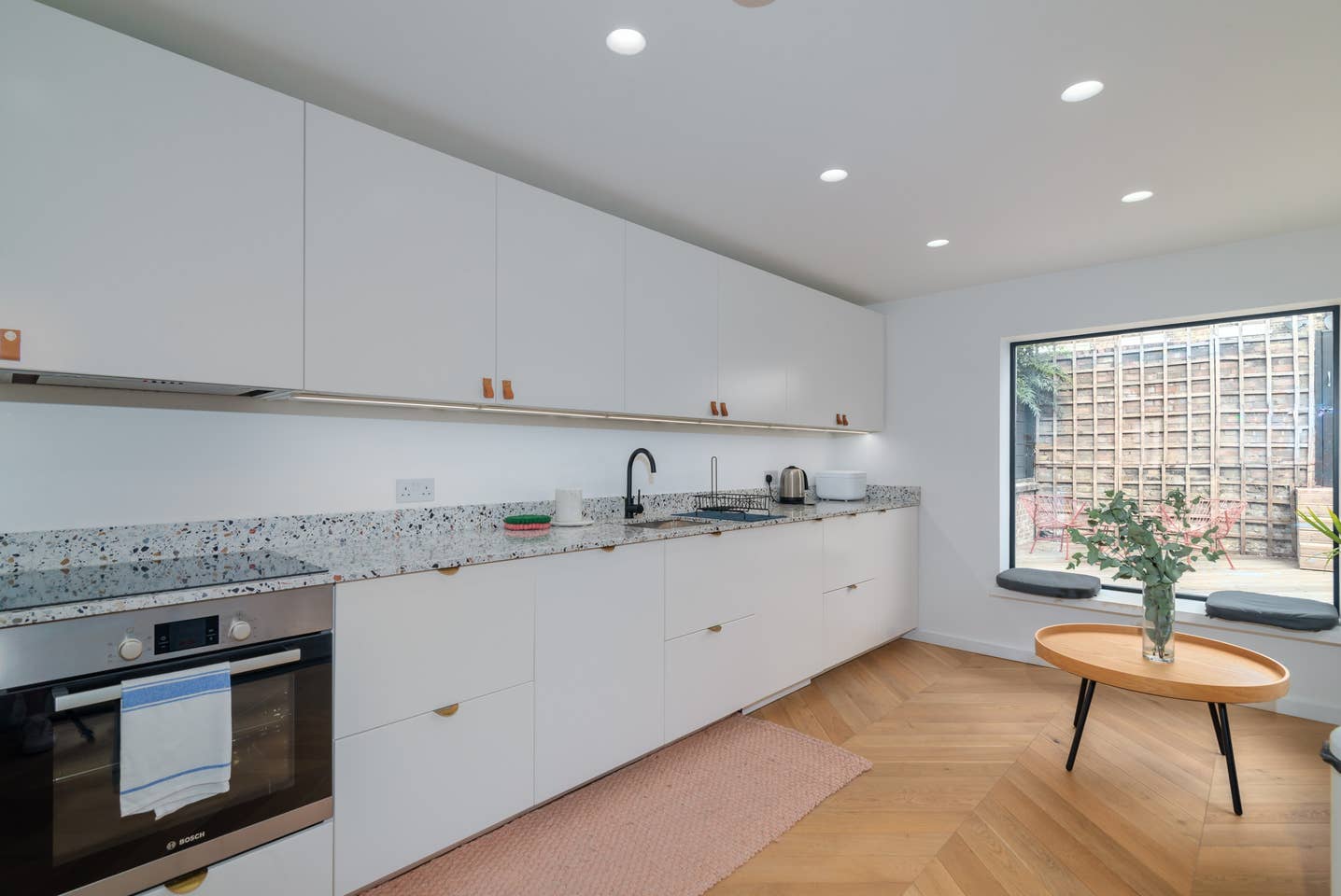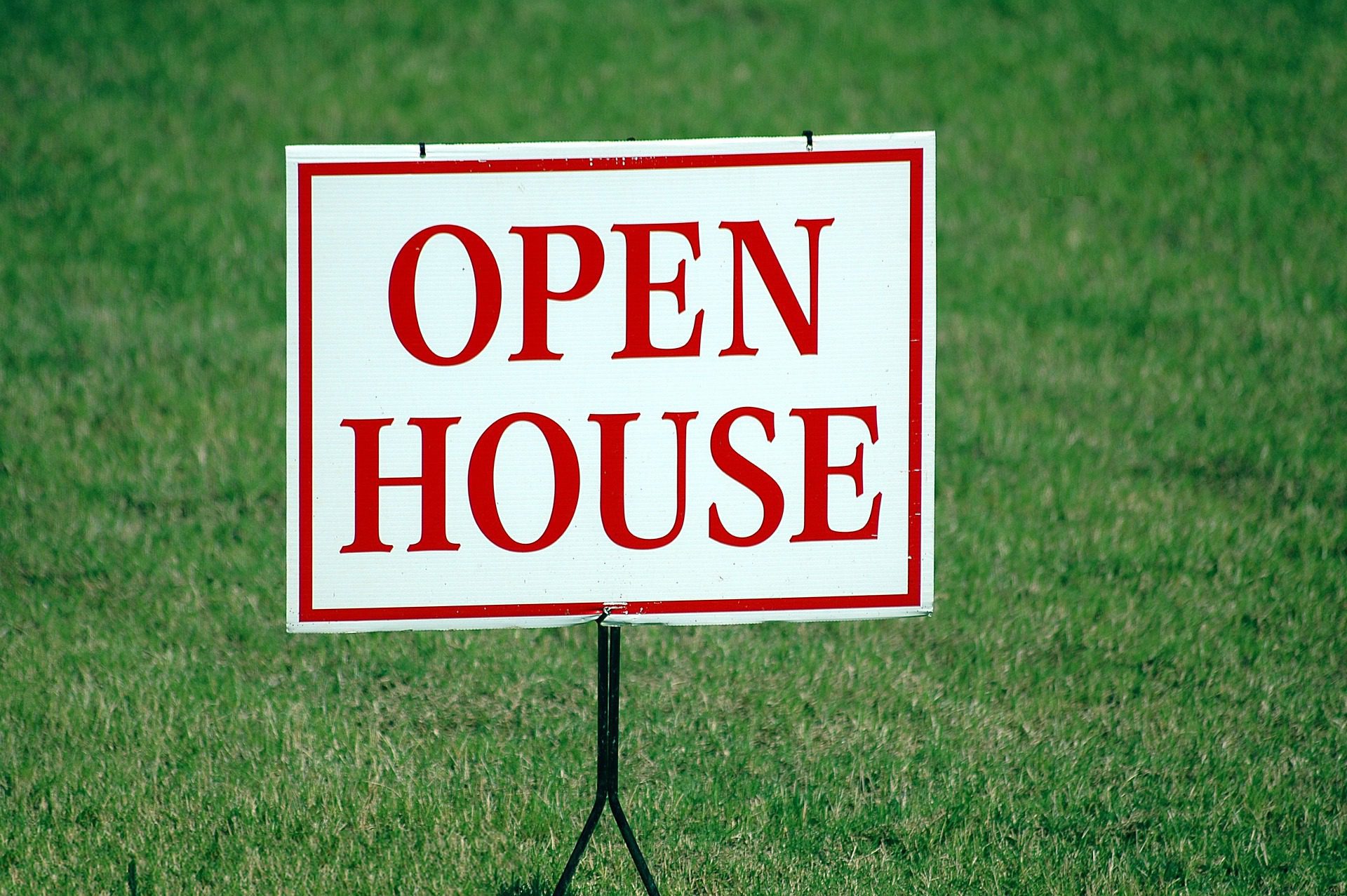
Buying property in London: The 2024 guide for investors
Thinking about buying property in London? London has always been a cosmopolitan commercial point in the world and it is amazing for property investment because:
- The average rent is £2,049 per month in London.
- The increase in London rent in 2023 was the highest since records began in 2006, with private rentals increasing by 6.9%.
- House prices in London are anticipated to fall by around 4% in 2024, making it a great year to buy property in the capital.
Yes, London is an expensive city, with an average purchase price of £735,254, but it’s worth it . To make an adequate property investment in London, follow our expert tips and advice in this ultimate guide to buying property in the capital.
Table of contents
- What are the requirements to buy a property in London?
- How much tax do I pay when buying a property in London?
- How to find a property in the UK?
- Where to buy property in the UK?
- What are the pitfalls of buying property in the UK?
- Why buy property in the UK?
- Is it worth buying property in the UK?
- Can foreigners buy property in the UK?
- Is now a good time to buy property in the UK?
- Post Covid-19 property trends in London
- Invest in the UK with GuestReady
1. What are the requirements for buying a property in London?
- Obtain a bank loan
- Going through a conveyance
Getting a bank loan and its contribution
In the UK, the loan of a property is always a loan secured by a mortgage, aptly named “mortgage” and not “loan”, for a loan. The good news is that UK banks can offer you mortgages when you have only 5% of the total amount to contribute.
However, the lower your deposit, the higher the interest on the loan. To calculate this, you can use this tool provided by HSBC. If you do not want to approach all the banks yourself, you can always use a broker. However, you should know that banks assess the risk of lending you money by looking at the following points:
- Your age
- Your income
- Your contribution
- The term of the loan (which is usually 25 years)
- Your financial history
- Whether you are taking out the loan alone or with others
Using a Conveyancer
To buy a property in London, the best thing to do is to go through a legal adviser, called a conveyancer. This is the person who will guide you through the intricacies of English property law. They will give you all the legal advice you need, do the property searches for you, and draw up the sale agreement. Usually, the same firm of solicitors will handle the sale as the seller. This saves money.
2. How much tax do I pay when buying property in London?
As the average price of a property in London is more than £700,000, you will have to pay one or two taxes, depending on your situation:
- VAT if you are buying through a qualifying limited company
- Stamp Duty Land Tax
What VAT to buy a property in London?
20% is the rate of VAT that applies to you when buying a property in London.
What SDLT, or stamp duty, does when buying a property in London?
You are only liable for stamp duty when buying a property worth over £250,000.00. As the average price of a property in London is close to £700,000.00, you will have to pay this tax.
This tax is applied in bands:
| Purchase price | SDLT Tax | |
|---|---|---|
| Up to £125,000.00 | 0% | |
| From £125,000.00 to £250,000.00 | 2% | |
| From £250,001.00 to £925,000.00 | 5% | |
| From £925,001.00 to £1.5 million | 10% | |
| Above £1.5 million | 12% | |
What is the rental income tax in London?
This is Income tax, to which non-residents are also subject to. A non-resident landlord is considered to be an individual who is outside the UK for more than six months a year.
The tax rate is calculated as follows:
| Annual rent amount | Tax on rental income | |
|---|---|---|
| Up to £12,570.00 | 0% | |
| From £12,571.00 to £50,270.00 | 20% | |
| From £50,271.00 to £150,000.00 | 40% | |
| Over £150,000.00 | 45% | |
How do I declare my rental income from properties in London?
You’ll need to fill in a form called “Self Assessment tax returns”, directly online, on the government website. Please note that the tax year starts on 06 April and ends on 05 April.
Therefore, you must do your paperwork before this deadline.
Do I have to pay capital gains tax when selling property in London?
Known as CGT, for Capital Gains Tax, the tax on capital gains made on a sale has been in force since 06 April 2015 for foreigners. Its rate is as follows:
- 28% for individuals
- 20% for companies
Until 2015, foreigners were exempt.

3. How do you find a property in London?
To buy a property in London, you can go through:
- A real estate agent
- Specialist websites
- Auction sales
How to find the best real estate agents in London
Spear’s has compiled a list of the best real estate agents. Those who will be able to find you the perfect property thanks to their network of knowledge. Please note that this list is aimed at investors with significant financial means.
For those who are still small investors, it is better to turn to the big national agencies:
If you have the time, you can turn to the websites.
What UK sites specialise in property listings?
If you are looking to buy a property in London and want to get an idea of the market, or even get in touch with a seller directly to buy a property, you can visit the following sites:
These websites have hundreds of rental listings in all parts of London.
How to buy property at auction in London
Every year, thousands of properties are auctioned across the UK. Buying a property in London at auction is entirely possible. To find out what properties are being auctioned in the English capital, there are several options:
- Visit the EIG (Essential Information Group) website
- Subscribe to Property Auction News magazine
- Subscribe to Estates Gazette magazine
- Subscribe to the London auction house mailing lists
Some known auctioneers:
- Barnard Marcus Auction House
- Auction House London
- Southgate Auction Rooms
If you want to make sure you don’t invest in a ruin, you can hire a Surveyor, a member of the Royal Institution of Chartered Surveyors (RICS). Their role is to provide you with a full report on the property you wish to buy:
- Building defects
- Assessment of the value of the house
- Evaluation of the cost of reconstruction (for insurance purposes)
- Work to be carried out

4. Where to buy property in London?
London is a city that covers 1,572 square kilometres. That’s more than New York and its 1,213 sq km, 15 times more than Paris, and almost twice as much as Berlin. So you can’t invest just anywhere to make your property profitable, especially if you want to rent it out on a seasonal basis, such as an Airbnb.
The best areas to invest in London are:
- Camden
- Croydon & Southwark
- Battersea
- Westminster
1. Camden
Perfect for Airbnb rentals, Camden is the area to invest in the English capital. All amenities are immediately on your doorstep. Its market is the fourth most popular tourist attraction in the city.
Crossed by the canal, Camden is a lively area, in which its streets welcome Indian, Mexican, Japanese, Spanish, English or Vietnamese cooks.
2. Croydon & Soutwark
Croydon is one of the best-value London boroughs in which to buy property in 2024. In 2023, the average house price in Croydon fell by 3.4%, the most significant fall of any London borough in the same period .
As a result, the average value of a property in Croydon sits at £369,659 today. Croydon is particularly well linked to the heart of the city, with 42 rail and tram links to central London. The journey time from Croydon to London Victoria is just 16 minutes.
What’s more, Croydon’s new BOXPARK development has brought delectable food and drink options to the area. Made out of shipping containers, the piazza houses independent businesses and has earned its place on London’s foodie scene.
It’s part of a more comprehensive redevelopment project in Croydon and reflects the success of similar BOXPARK projects in Shoreditch and Wembley. Ultimately, it’s another reason to consider Croydon as a potential place to buy in the capital in 2024.
Southwark is perhaps the best option if you’re looking to buy property in central London in 2024. In fact, Southwark offers the best value out of all of London’s central zones, with prices falling around 2.5% in the past year.
The average buy price in Southwark is currently £513,900, which is on par with Bromley. Considering that Southwark is in Zone One and Bromley is in Zone Five, it represents good value for money for anyone looking for a central London base.
Should you buy in Southwark, you will be within walking distance of some of London’s biggest attractions, including the West End and some of the capital’s best dining and drinking spots.
3. Battersea
Good for property investment in general, whether short or long-term, Battersea is coiled around a beautiful park alongside the Thames. Between its ultra-modern housing and Victorian buildings, Battersea is a link between the past and the future. Battersea is home to the famous Royal Academy of Dance, and the famous coal-fired power station, with its four white chimneys.
4. Westminster
Do we need to introduce this area, home to the Palace of Westminster and the Cathedral? The historic centre of London, Westminster is undoubtedly an outstanding investment location. Perfect for seasonal Airbnb rentals, your flat will not be empty all year round. In the heart of British politics, owning a property in the Westminster district is a sign of financial power beyond compare.
5. Hackney
Another perfect area for property investment in general, both short and long term, Hackney is located in East London. Popular and still somewhat affordable, Hackney retains a British style that gentrification has not yet taken away. Hackney is still the area that is neither too far nor too close to central London. Extremely well served by transport, Hackney is also the artists’ quarter, a place of creativity and celebration.

5. What are the pitfalls of buying property in London?
As a foreign buyer, you are easy prey for scammers of all stripes. The scam can be all the more complex to identify as the scammer may be playing on old practices that are no longer in use, or very rarely. To avoid bad experiences, make sure you check:
- The seller’s title
- The BIP
- The real estate company you are transferring the money to
- Any mortgages on the property
- The protection of your property
When to check the title?
Historically, the title deed was produced by the seller once the sale contract was signed. This is no longer the case. Today, a seller must create the title for you before the contract is signed, especially before you have paid any money to the seller.
We discuss what you need to check in Section 8.
Checking the PIF (Property Information Form)
When selling a property, the seller is required to complete a PIF. The PIF contains a number of questions, two of which are particularly important in the section entitled “Disputes”:
Are you aware of any disputes concerning this property or any neighbouring property?
Have you had any negotiations or discussions with neighbours which might affect the ownership of this property?
This can range from disputes with neighbours over noise (Doe v Skegg, 2006) to a promise to use part of the land, or the whole property, to a third party (Thorner v Major, 2009). It may happen that the sellers, despite the falsity of their statements, answer “no”. You will then have to prove, in the event of a subsequent dispute, that the seller lied because they knew the situation.
Therefore, rather than waiting until you have a problem, do a little neighbourhood investigation before you buy a property in London.
Property company impersonation
This fraud has already cost £320 million a year. A scammer intercepts your emails and pretends to be the property company to whom you are paying the money to buy your property.
At present, only six UK banks protect you from this through a system called COP, for confirmation of payment:
- HSBC
- Barclays
- Lloyds
- RBS
- Santander
- Nationwide Building Society
The mortgage scam
We are not going to go into detail here, as this fraud is not to your detriment, but rather it is you who is trying to carry it out. So be aware that if you are considering buying a property in the UK, the solicitor handling the case will be obliged to break business confidentiality is a key sign on running into a mortgage scam.
Once purchased, protect your property
The new trend is identity theft, made particularly easy by the dematerialisation of procedures. Because you can’t protect yourself against it, you should at least protect your property, especially if you are a foreign investor renting out your property.
To do this, two protections are possible and cumulative:
- The alert on the land register
- Confirmation of your identity, for any change, by issuing a certificate
- You can set up an alert, which will be sent to you by e-mail as soon as a change is made to the land register. You can be alerted on 10 different properties, free of charge, by visiting this site.
- Because this alert does not prevent a change to the register, you may decide to make any change conditional on the issue of a certificate by a conveyancer or solicitor, i.e. legal advisers specialising in property law.
To do this, if you do not live in your property, which will be the case for an investment property, you can complete a form to be mailed to the Citizen Center (RQ), to protect your property from the change of ownership. You can find this form here.
Understanding the Airbnb 90-Day Rule
If your plan is to buy property in London as a second home, and you wish to rent it out while you’re abroad, have in mind that to regulate the sharing economy in London, Airbnb introduced a 90-day lettings limit. The idea was welcomed by locals and today Airbnb automatically restricts bookings to 90-days a year.
Beware of property debts
In the UK, it is not compulsory to mention the existence of a mortgage on the property in the sale agreement. However, to find out whether the property you are considering buying is mortgaged, you only need to check the title deed at the Land Registry. For unregistered properties, you need to check the release form in the title deed. For more details, go to point 8 of this article.
6. Why buy property in London?
Due to the increased interest and mortgage rates over the past twelve months, the cost of houses in the UK declined in 2023. By December 2023, London houses had dropped an average of 1.5%, and projections suggest that prices will continue to fall slightly throughout 2024.
However, longer-term projections are promising for Londoners looking to buy in 2024. Following the 4% fall in prices projected across the city, five-year forecasts suggest that by 2027, the average London home is predicted to be worth £70,376 more than it is today, representing a sound investment by any measure.
7. Is it worth buying a property in London?
London remains appealing to foreign investors – in 2023, the estimated value of foreign-owned homes stood at £55.2 billion, with 103,425 homes registered with an overseas company or individual .
8. Can foreigners buy property in London?
Yes, but be warned, property rights in Britain are a bit peculiar. While the owner of a parcel of land owns the soil, subsoil, and even the airspace above his property, to the extent necessary for the enjoyment of the property (Bernstein v. Skyviews and General Ltd, 1978), two different property rights must be distinguished:
- “Freehold”
- Leasehold
In addition, there is the type of title:
- Registered land
- Unregistered land
In 2023, foreigners continued investing in the London property market, specifically in the following four areas:
- City of Westminster
- Kensington and Chelsea
- Tower Hamlets
- Camden
Foreigners own approximately 13% of all homes in the City of Westminster, while roughly 10% of the homes in Kensington and Chelsea are foreign-owned .
What is freehold?
Freehold is a virtually absolute property right. It has three characteristics. It is:
- Transmissible by succession
- Simple: can be owned by anyone
- Absolute: not limited in time
So why is it only almost absolute? Because, in Britain, all land belongs to the crown.
What is a leasehold?
Leasehold has two characteristics. It is:
- Limited in time
- Absolute, within the time limit provided
When you buy a leasehold property, you have to pay a monthly rent to the freeholder, who is the owner of the land. The length of the lease can vary, usually ranging from 90 to 120 years. In other words, under this status, you will never really own the property, let alone your children, as the property is not transferable.
When it comes to selling the house, the length of the remaining lease can have a negative impact on the sale price. Few people want to buy a property in London with only 20 or 30 years left on the lease.
Registered and unregistered land
It’s not as simple as it sounds. Land registration does not mean that the title to the land is registered, but that the titles, which also correspond to third-party rights of enjoyment over that land, are registered. In other words, you buy a piece of land, and your neighbour has the right to come and cut wood on it for his benefit.
Registration in the land register allows you to see at a glance whether such titles exist. The land register is based on three principles:
- The Mirror Principle: everything about the land is recorded in the register
- The Curtain Principle: the buyer does not have to consult anything other than the register
- The Insurance Principle: any error in the register leads to compensation for the injured party
Freeholds are normally all registered. In contrast, for leaseholds, the principle is that only leaseholds with a term of more than seven years should be registered.
Fortunately, most properties are now recorded on this register. Therefore, no third party can, in principle, challenge your title to the property you are buying if it does not appear in the land register (the curtain principle).
What to check when buying unregistered land
- The title deed
- The chain of ownership
- The certificate of probate
- The release form
- Stamp duty
- Charges
- If you are buying a property that is not registered in the Land Registry, you will need to ask the landlord for his title deed. This is a document that gives the full ownership history of the property you are buying.
- Documents relating to all previous owners must be present. You will then need to check each element in this chain.
- Where previous owners have died, the transfer to heirs is evidenced by a Grant of Probate.
- In the case of mortgages on the property, checking the ‘vacating receipt’ will enable you to verify that all mortgages have been paid off.
- Each assignment must have been subject to stamp duty. This is verified by the stamp on the document from the Land Registry and Inland Revenue.
- Finally, you will need to check that the property is not subject to any encumbrances (preservation of trees on the property, right-of-way agreements, etc.). To do this, go to a register which can be accessed here.

9. Is now a good time to buy property in London?
Yes. If you have the money available to invest in real estate in London, now is the right time to do it. As highlighted, 2024 is likely to be a very good year to buy property in London, given the projected reduction in house prices by as much as 4% by the end of the year.
What’s more, you can find brilliant value in some London boroughs. Camden looks like the best place to buy in 2024, with excellent transport links to central London, a low average buy price, and new community developments helping to regenerate the area.
Southwark is your best option in central London, with a similar buy price to properties in Bromley out in Zone 5. Ultimately, if you have the money to invest in a property in London, 2024 is the ideal year to invest in the market.
10. Post Covid-19 property trends in London
Research from Forsters highlights some interesting shifts in buying and renting trends in the capital since COVID-19 . As you might expect, many buyers have considered a change of emphasis towards additional living space since the pandemic, creating more demand for properties outside London.
In fact, researchers found that twice the number of buyers were looking for properties outside the capital since the pandemic compared with the period leading up to it. In other words, people are willing to consider longer commutes in exchange for more living space.
This has led to an increase in investments in some of London’s outlying areas and boroughs, but it has also meant that new buyers have been able to access property in London that may not have previously been available.
However, research from CapitalRise and Savills indicates that the London property market has recovered well since, reassuring potential investors that buying in London is still likely to yield impressive long-term returns.
Is now a good time to buy property in London?
Yes. When investing in real estate in London, now is the right time to invest if you have the money available. As highlighted, 2024 is likely to be a very good year to buy property in London, given the projected reduction in house prices by as much as 4% by the end of the year.
What’s more, you can find brilliant value in some London boroughs. Camden looks like the best place to buy in 2024, with excellent transport links to central London, a low average buy price, and new community developments helping to regenerate the area.
Southwark is your best option in central London, with a similar buy price to properties in Bromley out in Zone 5. Ultimately, if you have the money to invest in a property in London, 2024 is the ideal year to invest in the market
11. Investing with GuestReady in London
Investing abroad is always a bit anxiety-inducing. You wonder how you’re going to manage short-term rentals, the most profitable ones. With so many people coming and going, you think you’d have to be on the ground or have someone you trust in town to look after your properties.
Well, there is such a thing. With GuestReady, you can invest in London without the worry of having to travel to the UK capital to manage your property affairs. GuestReady takes care of everything:
- Interior design and photography of the property
- Publishing the advert on the most profitable sites, such as Airbnb
- Optimising the placement of your advert for search engines
- 24/7 communication with your clients
- Reservation management in 15 languages
- Checking in and out of the apartment
- Cleaning of the flat after each departure
- Availability of guests for any request
GuestReady allows you to invest in London without having to worry about managing your property in the UK capital. GuestReady is your trusted team.



